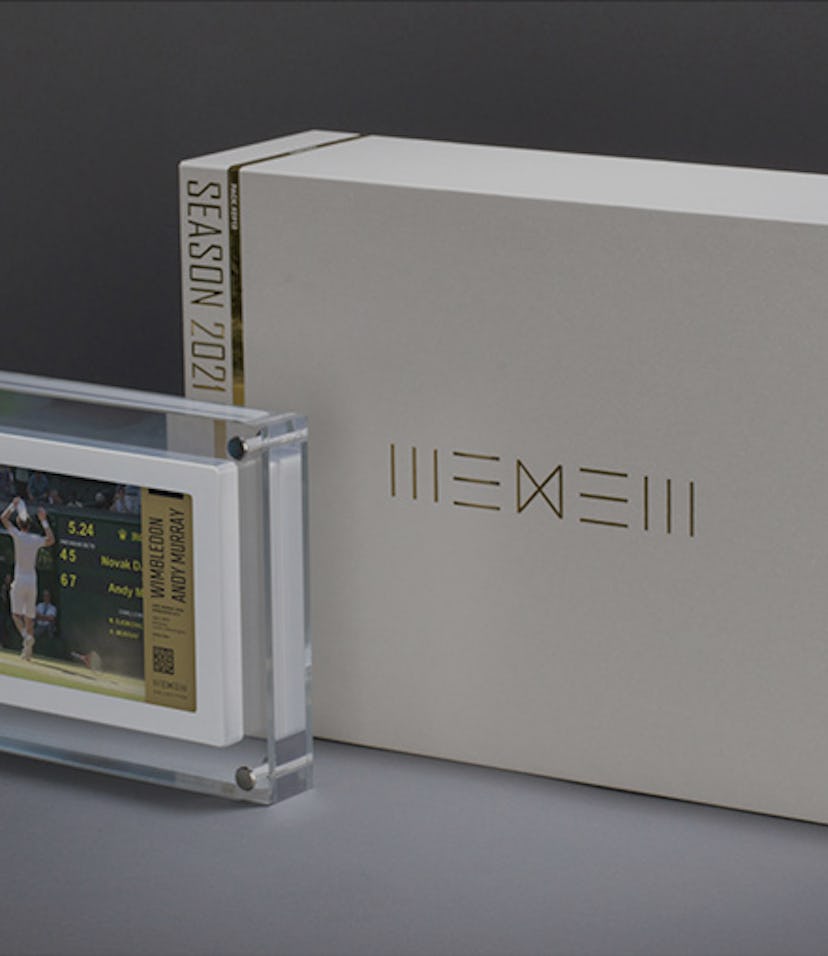Culture
Beeple's new NFT startup feels a lot like a cash grab (and an IP nightmare)
Wenew is selling “iconic moments” as NFTs, but those who captured the moments are largely being left out of the equation.

Fresh off his $69 million NFT sale, Beeple is launching a new platform called Wenew that will sell “iconic” moments in time as NFTs. Unlike other NFT companies, Wenew will sell its more expensive NFTs packaged with physical artifacts like posters and digital displays.
A few of Beeple’s long-time friends and collaborators are helping out with the launch of Wenew, including Pitchfork founder Ryan Schrieber. Schrieber will be Wenew’s first editor-in-chief, which, for an NFT platform, apparently means curating the moments chosen for sale, according to The Verge.
With each new “moment,’ Wenew plans to offer a sliding scale of editions. For its first — Andy Murray’s 2013 Wimbledon win — you can purchase the moment Murray won, the trophy ceremony, his victory speech, his 2012 runners-up speech, or 2013 highlights. The “winning moment” NFT will be sold as a single-edition release; the others range in edition size from 20 to 500.
The project as a whole raises some red flags. NFTs of any kind are ripe for intellectual property scammery — and Wenew isn’t exactly doing a great job of communicating how those who originally created these works will be compensated.
Some momentum — but why? — Wenew’s intriguing NFT model has already been making some waves in more traditional art outlets. Keith Grossman, president of Time, tweeted that the magazine will be partnering with Wenew for its launch. Grossman says Wenew has “built the ideal environment” to “continue to curate the moments & events that define our time in new ways.”
Maybe we’re missing something here, but it doesn’t exactly seem Wenew will actually achieve the lofty storytelling and curation levels being promised. Wenew’s website says: “We immortalize culture’s most consequential moments on the blockchain, forever linking celebrated icons and their achievements with the collectors who admire them most.”
It’s unclear how turning these moments into NFTs actually does anything to preserve or revere them. Wenew is just turning those moments into profits. And your first landmark moment — in 2021 — is of a white guy winning a tennis match?
The intellectual property nightmare — To make matters worse, Wenew ’s pre-launch marketing has been very unclear about how — or even if — those artists who originally created these works will be compensated. When asked for comment on the matter, Wenew told Input that content from Wenew NFTs “comes directly from the people who lived the moment, or an associated estate or organization.” In some cases, the content is licensed or purchased from other media organizations.
Wenew says also that revenue from the project will go to “the moment’s originator” (with a cut to Wenew, of course). The company’s language around compensation is notably murky. Andy Murray lived these moments, yes — but he did not take the photos. Why is Murray — a multimillionaire — entitled to revenue from photos and videos he did not create?
Meanwhile, in his chat with The Verge, Schrieber stated that Wenew “offers artists the potential to actually be able to make what they deserve to make, frankly, off of their work.” Schriber seems certain every artist involved in creating these works will be compensated for their work; Wenew’s responses to Input tell a different story, centering the person in the moment as a creator.
Rather than fixing the intellectual property nightmare associated with NFTs (anyone can upload any photo and claim it’s theirs, after all), Wenew seems to be playing right into this problematic nature. Is Wenew the future of NFTs? If so, that’s a pretty bleak future.